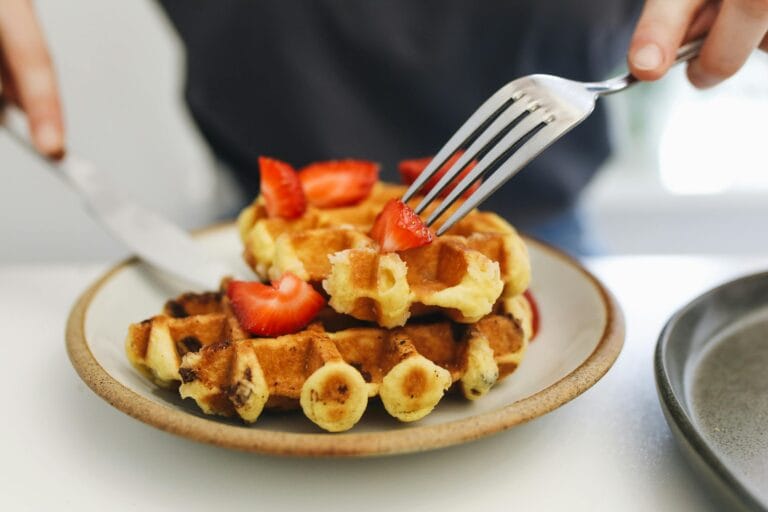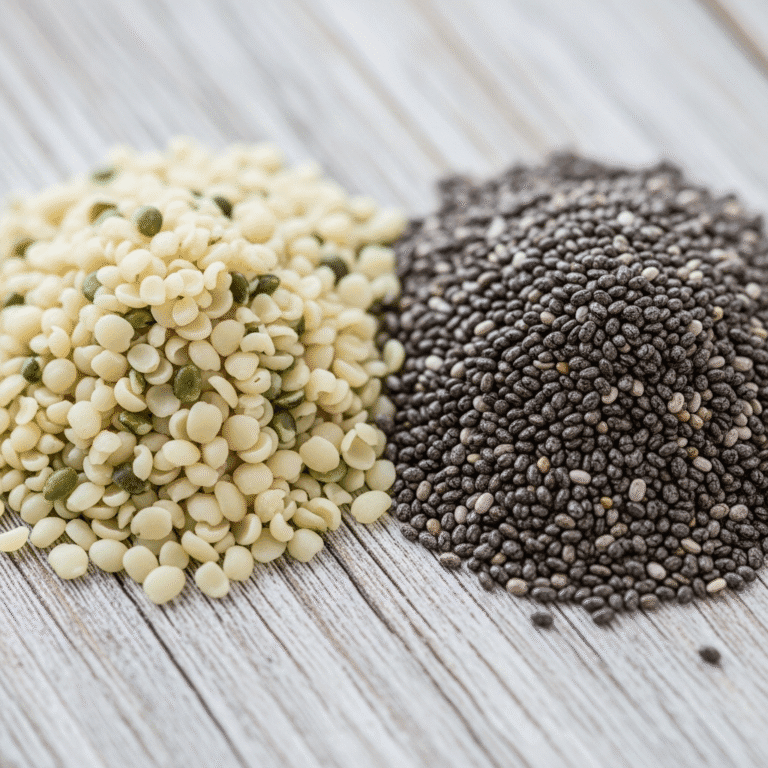FREE SHIPPING OVER $50
Frozen Foods That Lower Blood Pressure? Dietitians Swear by These 8 Picks That Are Already in Your Supermarket

Navigating the supermarket can often feel like a guessing game. You walk down the aisles, determined to make healthy choices, but the sheer number of options can be overwhelming. This is especially true in the frozen food section, which is often seen as a place of convenience filled with high-sodium, processed meals. The common wisdom tells us to avoid the freezer aisle if we’re serious about our health.
But what if that common wisdom is wrong? What if your freezer holds some of the most powerful and convenient tools for fighting a silent threat to your heart health: high blood pressure? Dietitians and nutrition experts are increasingly pointing to frozen foods as a simple, affordable, and effective way to get the nutrients you need to naturally lower your blood pressure.
The Science of Blood Pressure: The Nutrients That Matter
High blood pressure, or hypertension, is a major risk factor for heart attack and stroke. It’s a condition where the force of your blood pushing against your artery walls is consistently too high. While factors like genetics and lifestyle play a role, nutrition is a powerful tool you can use to manage it. Certain key nutrients have a direct, scientifically proven impact on your blood pressure levels.
Potassium
Think of potassium as the ultimate counterbalance to sodium. When you consume too much sodium, your body holds on to water, increasing your blood volume and, consequently, your blood pressure. Potassium helps your kidneys flush out excess sodium, relaxing the walls of your blood vessels and improving blood flow. Most people don’t get enough potassium in their daily diet, and adding more is one of the most effective ways to lower your blood pressure.
Magnesium
This essential mineral works like a natural muscle relaxer for your blood vessels. It helps to regulate blood pressure by promoting the production of nitric oxide, a compound that helps to widen blood vessels and improve blood flow. A diet rich in magnesium is crucial for maintaining healthy blood pressure levels and reducing the risk of hypertension.
Fiber
Fiber is not just for digestion. Soluble fiber, in particular, has a positive impact on your heart health. It helps lower cholesterol levels, and a diet high in fiber is a key component of the DASH diet (Dietary Approaches to Stop Hypertension), one of the most highly recommended nutritional plans for managing blood pressure.
Frozen Foods: The Underrated Heart-Healthy Hack
For years, we’ve been told to choose fresh over frozen. The truth is, frozen foods can often be just as, if not more, nutritious than their fresh counterparts.
- Peak Freshness: Frozen fruits and vegetables are typically picked at their peak ripeness and frozen within hours. This process locks in their vitamins, minerals, and antioxidants before they have a chance to degrade. Fresh produce, on the other hand, can lose nutrients during transport and storage.
- Convenience and Reduced Waste: We’ve all been there: a bag of fresh spinach wilts in the fridge, or a bunch of berries goes moldy before you can eat them all. Frozen foods eliminate this waste. You can use only what you need and save the rest for later, making healthy eating more accessible and budget-friendly.
- No Added Junk: When you choose plain frozen produce—without sauces, marinades, or seasonings—you get pure, wholesome nutrition. This is a crucial distinction, as many pre-packaged frozen meals are loaded with sodium and unhealthy fats.
8 Dietitian-Approved Frozen Foods for Better Blood Pressure
Now that we understand the benefits of frozen foods, let’s explore the specific items dietitians recommend to help you manage high blood pressure.
1. Frozen Spinach
Frozen spinach is a blood pressure superstar. It’s packed with potassium and magnesium, two of the most critical minerals for lowering hypertension. A single serving of spinach provides a significant portion of your daily needs for both. It is also rich in dietary nitrates, which your body converts to nitric oxide, a molecule that helps relax your blood vessels and improve blood flow.
2. Edamame
This plant-based protein is a fantastic addition to your freezer. A single cup of frozen edamame is a great source of both potassium and magnesium, and it’s an easy way to boost your intake of fiber and protein. It’s a low-sodium food when prepared without added salt and makes for a perfect snack or addition to stir-fries, salads, and grain bowls.
3. Frozen Berries
While they might be known for their antioxidant power, frozen berries—like blueberries, strawberries, and raspberries—are also excellent for your blood pressure. They are rich in a specific type of antioxidant called anthocyanins, which have been shown to help relax blood vessel walls. They also provide a generous amount of fiber.
4. Frozen Sweet Potatoes
Sweet potatoes are a nutritional powerhouse, and their frozen, pre-cut versions make them incredibly convenient. They are one of the best sources of potassium available, making them a key player in managing your blood pressure by balancing sodium levels. You can easily roast them, mash them, or add them to soups for a quick and healthy meal.
5. Frozen Broccoli
Frozen broccoli is a staple in most freezers for a good reason. It’s an easy-to-prepare vegetable that is loaded with magnesium and fiber. A diet rich in magnesium is known to have a positive impact on blood pressure, and the fiber in broccoli helps to support overall heart health.
6. Frozen Salmon
Fatty fish like salmon is a well-known heart-healthy food, and the frozen variety is often more affordable and just as nutritious as fresh. It’s packed with Omega-3 fatty acids, which have been shown to help lower blood pressure and reduce inflammation. Keeping frozen salmon filets on hand is a great way to ensure you can easily get your recommended servings of fatty fish each week.
7. Riced Cauliflower
For anyone watching their carb intake, frozen riced cauliflower has become a game changer. It’s a low-sodium, low-calorie alternative to rice that provides a good dose of fiber and other nutrients. Incorporating it into meals is a simple way to replace a starch with a vegetable, naturally lowering your overall sodium and carbohydrate intake.
8. Peas
Often overlooked, frozen peas are a small but mighty source of nutrition. They contain a surprising amount of potassium and magnesium, along with a good dose of protein and fiber. They are a versatile addition to soups, stews, casseroles, and salads, making it easy to sprinkle them into almost any meal for an instant health boost.
Building a Heart-Healthy Plate: A Simple Plan
You can use these frozen food picks to create a comprehensive, blood pressure-friendly eating plan without ever having to spend hours in the kitchen.
- Meal Prep Magic: Use frozen spinach and frozen berries in your morning smoothies. A handful of frozen edamame can be defrosted and added to your salad for lunch. For dinner, pair a roasted frozen sweet potato with a frozen salmon filet and a side of steamed frozen broccoli.
- The Frozen Food Formula: Aim to fill at least half of your plate with vegetables. With a freezer full of these options, it’s easy to always have a healthy vegetable on hand. Pair them with a lean protein source and a whole grain.
- Watch the Sodium: The most important tip for buying frozen foods is to always read the label. Choose plain vegetables and proteins, and avoid options with added sauces, seasonings, or breading, as these are often high in sodium.
Conclusion
The old belief that the frozen food aisle is a wasteland for your health is simply outdated. With a little knowledge and a few key choices, your freezer can become a powerful ally in your fight against high blood pressure. By stocking up on dietitian-approved frozen produce and proteins that are rich in potassium, magnesium, and fiber, you can make healthy eating more convenient, more affordable, and more delicious. The secret to a healthier heart isn’t hidden in some expensive, exotic superfood; it’s waiting for you in the very next aisle of your local supermarket.
Related Articles
- Stop Wasting Money on Vitamin B12 Supplements —These 10 Foods Boost Brainpower Naturally
- Craving Fries? This Science-Backed Potato Hack Helps You Avoid Blood Sugar Spikes
- Tired of Feeling Hungry Before Lunch These 10 Breakfast Hacks Pack Serious Fiber and Protein
- Bananas or Plantains? One Packs More Nutrients—And It’s Not What You Think
- Forget the Injections—Doctors Are Buzzing About This Sugar Alternative That Could Mimic Ozempic for Fat Loss







